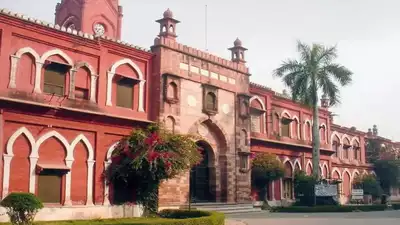Today, the Supreme Court is set to review the 1967 verdict by a five-judge bench that revoked Aligarh Muslim University’s (AMU) minority status. The university is presenting historical evidence, its emblem, educational curriculum, and the appointment of muezzins as arguments in its endeavor to regain the ‘minority institution’ status, despite being subject to the UGC Act.
The verdict in question
In 1967, the S Azee Basha vs Union of India case saw a five-judge Constitution bench ruling that Aligarh Muslim University (AMU) was not established or administered by the Muslim minority. Consequently, it was deemed ineligible for protection as a minority institution to administer educational facilities under Article 30(1) of the Constitution. However, on November 26, 1981, a two-judge Supreme Court bench, in the Anjuman-e-Rahmania vs District Inspector of Schools case, questioned the correctness of the Azeez Basha ruling and referred the matter to a seven-judge bench.
Presently, a seven-judge bench, led by Chief Justice of India DY Chandrachud, is scheduled to hear the case today. Additionally, during the pendency of the matter before the seven-judge bench, petitions were filed in the Allahabad High Court challenging AMU’s decision to reserve seats for Muslims in post-graduate courses. On January 5, 2006, the Allahabad High Court declared that AMU was not a minority institution and deemed the reservation for Muslims in postgraduate courses as unconstitutional and impermissible.
A political matter
During the UPA government’s tenure, the Centre had endorsed Aligarh Muslim University’s (AMU) minority status. However, in 2016, the NDA government retracted the affidavit submitted by the UPA, asserting that AMU did not qualify as a minority institution under the UGC Act.
Article 30 of the Constitution grants the right to all minorities, whether defined by religion or language, to establish and administer educational institutions of their preference. Institutions with minority status can reserve seats for admission based on religion and are eligible for specific government funds.
